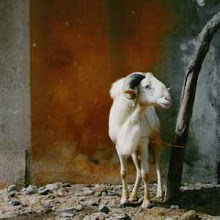Source: www.flickr.com
Photographier lentement... prendre le temps de photographier... se demander à quel rythme on photographie... ou bien photographier vite ou régulièrement... ne pas oublier de photographier... ne pas se laisser bouffer par le temps qui nous empêche de photographier... La photographie, ce n'est pas seulement le résultat de la lumière... mais le produit temps*lumière...
_exercices
_pratiques
Abbott B
Adams A
Anonyme
Antonioni M
Aragon
Arbus D
Assouline P
Austin J
Avedon R
Bailly JC
Barthes R
Becher B
Becher H
Benjamin W
Berger J
Birsinger B
Bosworth P
Bourdieu P
Breton A
Brook P
Broomberg A
Budliger K
Burgin V
Bury J
Cartier-Bresson H
Chanarin O
Charbonnier M
Cheroux C
Chilvers CJ
Collectif
Conrad F
Cunningham I
Daninos P
Davanne A
de Retz
Delacroix E
Drapkin A
Dubreuil B
Duchamp M
Duseigne V
Evans A
Evans DH
Fatona A
Fleischer A
Fremiot N
Freund G
Gandhi M
Gayeton D
Genere B
Genevrier M
Genon A
Gordon D
Gorz A
Graff L
Grass G
Grimalt B
Groulx P
Grover AS
Guibert H
Gunthert A
Hilltout J
Hockney D
Hooft Graafland S
Horton
Jehanno R
Jouannais JY
Kangas O
Kenna M
Kravagna C
Kundera M
Labrousse Y
Lafosse J
Lange D
Langlois JC
Lemaire C
Lorfing J
Mackie C
Mandelbrot
Masao Y
Merzeau L
Migeat V
Morell A
Mortier Q
Mougin JC
Murray S
Narduzzi L
Njeng PY
Norris B
Nowell H
Orlik E
Osborne S
Pellizzari P
Peronne G
Peyre H
Picasso P
Polet G
Porteous J
Pujade R
Raffard M
Ramalingam C
Ray M
Reillier F
Resseler Y
Rexer L
Ristelhueber S
Rodin A
Roegiers P
Ronis W
Rouille A
Ruel N
Shore S
Sieff J
Silesius A
Smith S
Sontag S
Stieglitz A
Strand P
Talbot F
Tchorski
Thelot J
Thevenet M
Thiollent B
Thoreau HD
Tisseron S
Toussaint JP
Van Cottom J
Van Rossum O
Verburgh K
Vilet J
Wesely M
Wilson C
Winogrand G
Wu T
samedi 16 avril 2011
Slow food, I mean, slow photography
Source: www.flickr.com
Libellés :
Anonyme
samedi 9 avril 2011
C'est la peinture...
"The phrase, "slow photography," might conjure images of large format cameras or glass plate techniques; even the idea of loading film may seem slow considering the efficient speed in which photographic images are created today. However, another connotation may not allude to a technology so much as it does sensibility an approach to understanding particular roles that photographs can play, a methodical and drawn out way to produce paintings. The three artists in Slow Photography use photography as a starting point, taking exorbitant amounts of time to produce ostensible "photos": paintings that appear to translate a photographic record, yet are something else entirely."
Horton Gallery / Press Release
Libellés :
Horton
vendredi 8 avril 2011
Charles Lemaire / Je suis plutot du cote slow...
Oui, je fais finalement très peu de photos, mais je prends le temps de les faire. Si je rate une photo d'automne, ce n'est pas grave, j'attendrai l'automne prochain. J'essaie d'inscrire la photo dans la durée, là où, avec l'avènement du numérique, elle est entrée dans l'intantanné. Comme il existe le fast-food et le slow-food, il y a la fast-photo et la slow-photo. Je suis plutôt du côté "slow". (...)
J'ai toujours voulu faire des photos qui permettent de souffler. (...)"
"Inscrire la photo dans la durée" par Th. J / Interview de Charles Lemaire / Vers L'Avenir / 9/9/2005
Libellés :
Lemaire C
jeudi 7 avril 2011
Adam Broomberg, Oliver Chanarin / prison photography
There is a sense that Broomberg and Chanarin arrive ‘either too early or too late’ and not within the usual media-driven time scale at a site of social crisis.
(...)"
Source: Prison photography
Libellés :
Broomberg A,
Chanarin O
mercredi 6 avril 2011
Tim Wu / A quoi ca rime de photographier ?
Step 1 in slow photography is spending a long time studying the subject. As one guide enjoins, "pay more attention to your subject than to your camera." That's an order to actually use your eyes. It calls for consideration not just of what you think you see (a tree or a dog) but of the colors and shapes that present themselves. Thinking dog or tree can blind you to what you are really seeing—which is, in the end, a series of photons arranged in a way that for convenience you call dog. It may sound like semantics, but it makes all the difference. When you look carefully and avoid trying to label what you see, you inevitably start to notice things that you mightn't have otherwise.
If Step 1 is a long consideration of the subject, Step 2 is the exercise of creative choices—the greatest pleasure that our automatic cameras rob us of. What should be in the frame and what should be excluded is the most obvious decision, but there's also exposure, depth of field, and more technical choices beyond that. Making such deliberate decisions requires a little bit of courage, for you cannot blame the camera if the results are bad. Yet these choices are, to my mind, the whole game. They are what individualizes photography, what puts the stamp of your personality on the photo.
After taking these two steps, taking the photo becomes irrelevant. You've already had the experience. At this stage, you could shoot with a filmless camera, and the process could retain its power. In the logic of slow photography, the only reason to take photos is to gain access to the third stage, playing around in post-production, whether in a darkroom or using photo-editing tools, an addictive pleasure."
The Slow-Photography Movement, What is the point of taking pictures? / Tim Wu sur Slate
Libellés :
_pratiques,
Wu T
Inscription à :
Articles (Atom)
Qui êtes-vous ?

- Charles (biloko) Lemaire
- Ex journaliste, informaticien, Ecolo, photographe, belge, bedonnant, grisonnant, polyglotte, passant quotidiennement trop heures derrière mon volant. Vous en voulez encore? Parlons plutôt photographie!